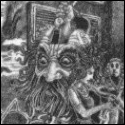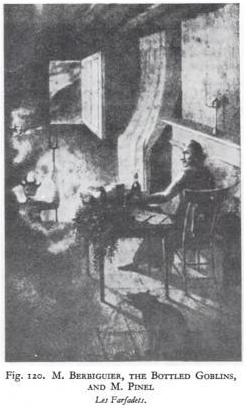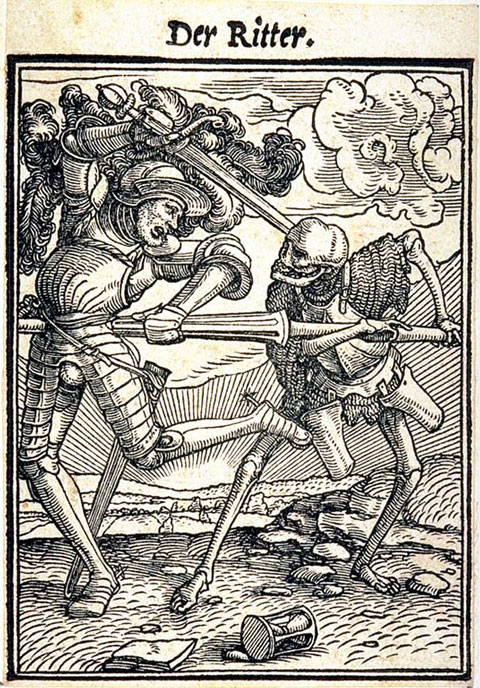|
 Turns are due in an hour and a half. Get them in! Turns are due in an hour and a half. Get them in! 
|
| # ? Nov 14, 2012 21:33 |
|
Georges Cadoudal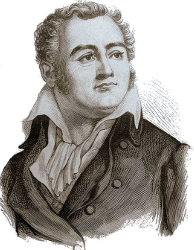 From Georges' private diary, Nov. 14 1791 posted:...and so here I am, I think the only damnable intellectual in all the kingdom! The revolutionaries do not argue and reason by premise and conclusion, they assert their conclusions with the shrieks and babbles of apes, content that should they cry and howl long and loud enough, men will be convinced of their correctness. Should a man speak against their madness, the revolutionaries do not argue, but emote about patriotism and treachery, and vague words such as "progress." But progress toward what end?
|
| # ? Nov 14, 2012 21:55 |
|
Arujei posted:Georges Cadoudal  234x250 Antoine Barnave If the good Georges Cadoudal would wish a debate partner about the merits of the new Constitution and government, I will gladly offer myself to a public series. But where? Not sure how we'd go about that, but I'll put it in my turn actions along with you, Arujei, if that'd work. I also like how it appears that Antoine is apparently reading Georges' diary.
|
| # ? Nov 14, 2012 22:01 |
|
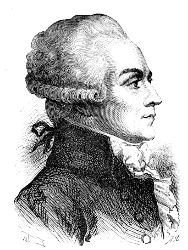 I propose the debate should be held in Paris, as the beating heart of the nation! An exhortation to the people of France posted:
Arujei posted:Georges Cadoudal A response to the scurrilous attacks of Cadoudal posted:Did expanding the franchise to the French Christian make them no longer Christian? Did they have to give up their religion, their culture, their communities and families? An obvious and emphatic no! The same would be of the Jews of France. We seek to take nothing, but only give - give an equal and fair say in their government. Would you look that poor Jew in the eye, arrested for the "crime" of attempting to enlist in the armies of France, and tell him that he is not deserving of a say in his government? Truly the most shameful declaration from a man who has made many!
|
| # ? Nov 14, 2012 22:05 |
|
   Louis Stanislas Xavier, comte de Provence, Regent of the Kingdom of France and Navarre, acting in lieu of His Most Christian Majesty The King, Louis XVI A warning to the nobility of Europe posted:
|
| # ? Nov 14, 2012 22:22 |
|
 From the most Virtuous Pen of Robespierre To my fellow Republicans, I encourage you to take to the streets and speak out. Let your mouths shout from the rooftops, your pens fill untold sheaves of paper. Let our message be heard, a bulwark against the storm of monarchy from the East!
|
| # ? Nov 14, 2012 22:30 |
|
Another page of a journal believed to have been written by Toussaint Louveture. ...been rough but rewarding. The recruits are hard to teach, but they seem to eventually be getting it. François has proven himself to be quite the educator, capable of giving them a basic understanding of firing and retreating when on their own. But the hard part has been convincing them to work together as a unit, to trust their life in the hands of another while they reload. Trust cannot be taught, it can only be learned, and the abominable institution has crushed the nature-born trust we all have for our fellow man. Yet we persevere, and day by day the recruits begin to understand that they cannot work alone. I pray that, once the battle begins, the 1er Régiment de Chez Cabre can set an example for the rest.
|
| # ? Nov 14, 2012 22:31 |
|
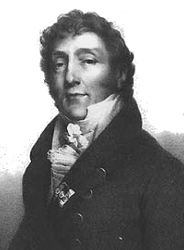 With the present legislative session drawing to a close, here is the final accounting of my positions on the various bills currently before the Assembly. Free Trade Compact w/ USA: Yes. The United States is a vital ally to France, and this will further cement our good relations. Food Relief Act of 1791: Yes. The Assembly must follow the example of the King and provide for the poorest of France's subjects. Reinforce the National Guard Act: Yes. The National Guard is a vital instrument of the state that needs to be supported. Traitors to France Resolution: No. The Bretons were simply reacting to the capricious and unjust whims of the madman de Sade. We must mend our kingdom, not further divide it. The Final Contribution of the Emigre: No. It's too soon to shut the door on those subjects of the King who fled in a time of uncertainty. Tax Levy for the Guard: Yes. As the Final Contribution of the Emigre is obviously unjust, the security of the realm must be paid for in other ways. Jewish Emancipation Act: Yes. Quality officers and recruits are being turned away from the army by archaic restrictions on the kingdom's Jewish subjects. City Guard Act: No. This would simply empower Jacobin thugs at the cost of the legitimate instruments of the state. Emigre Amnesty: Yes-- it is imperative that all loyal subjects of France return to their kingdom in its time of need. Luckner Budget: Yes. Good government must be restored after the damages wrought by de Sade. The Carrot and Stick Act: No. This act is redundant with the provisions of the Luckner budget. The Amended Luckner Acts: No. Haiti is cause for concern, but not an existential threat. Our most important wars will be fought on the Continent. Lady Freedom Act of 1791: No. Too much, too soon. Abolition of Slavery: Yes. This should take the wind out of the Haitian rebellion's sails without an expensive military campaign.
|
| # ? Nov 14, 2012 22:37 |
|
A homily given by Fr. Duc, Christmas Eve, in the Free St-Domingue encampment outside le Cap, written from recollection by a learned gens de couleur. My brothers, centuries ago, on this night, in a land so far away and yet so similar to here, a man was born. It was on a still, quiet night, much like this one, when his mother went into labor and painlessly bore for us our Savior. He is the King of Kings - yet he was not crowned here on earth. In fact he was quite the poor man; the son of a lowly carpenter. He was of a race which had once been slaves, toiling for generations in misery, but who had their freedom ransomed by God, and who delivered them to salvation. Even before birth his advent was feared by those with power - the king's men swept through the land of Bethlehem and massacred all newborn boys, but for all his strength, for all his weapons and soldiers, he could not kill our Lord. For though He was a babe, He held in His hand the mightiest of power. Before Him, the proud are humbled, the lowly exalted. The mighty are knocked down, and the meek raised up. The world, so full it is of misery and sin, is redeemed by his grace, and we, those left on earth, await his return with the confidence of true faith. Tonight we remember the beauty of this birth, and we rejoice at the coming of our Emmanuel. He is our day-spring, our font of joy and light, and our strength in these dark times. For with Him, the battle is already won - when death itself flees in terror, when the grave has no sting, what is there to fear? My brothers, let us rejoice tonight. Tonight is the eve of His birth; someday it shall be the eve of his return.
|
| # ? Nov 14, 2012 22:52 |
|
IPlayVideoGames posted:
Georges Cadoudal  Open Letter to Barnave posted:I accept Monsieur Barnave's invitation, and if he might allow me to set the terms of our discussion, I propose this: In Spring 1792, we should debate the proposition "The only just state is the popular state" [ooc: "popular" as Lincoln means "popular government"]. I shall take the negative, if it pleases you to take the affirmative. Furthermore, I suggest we hold our debate in Toulouse, that we might both be away from partisans who might seek to sway by force what we seek to discuss by reason. If this be contrary to your wishes, feel free to propose another site and proposition. I eagerly await your response. A response to the libel of Robespierre posted:Monsieur Robespierre believes that a republic is consonant with the laws, religion, and communities of France. But his statements are contradicted by his very actions. The assembly divided the ancient provinces of the kingdom, to separate historical and organic communities from one another, replaced the ancient customary laws of counties, the solidarity of the guilds, the privileges of town and village, with the absolute and unrelenting force of the national assembly. Where once intermediaries, secular and religious, close to their homes could convince the King of the necessity and justness of local customs, now agents from Paris seek to erase all differences, no matter the cost. In place of the laws of Brittany, Toulouse, the Agenais, Normandy, or Burgundy, there is only the law of Paris.
|
| # ? Nov 14, 2012 23:02 |
|
Arujei posted:Georges Cadoudal  234x250 A return letter to George Cadoudal posted:I am pleased to agree to the location and topic of the debate. Furthermore, I would suggest two more debates to follow at a future date, one in Paris, and one in a location of your choice in Brittany, as I would be glad to speak with you and to the good Bretons, as well as to give you the opportunity for discourse in front of those of Metropolitan Paris.
|
| # ? Nov 14, 2012 23:13 |
|
Georges Cadoudal A Letter to Barnave posted:While I applaud your eagerness for further tests of intellect and rhetoric, let us make sure that our first contest goes well. I am pleased, though, that there still exists in this kingdom men who might battle over the most important questions of the age, without descending first into accusations of treachery and calumny. A Letter to Monsieur Toussaint posted:Hail, friend, and brother in Christ! Much ink has been spilled in the kingdom concerning your actions in Haiti, ranging from the libelous to literary apotheosis! I know it may be small comfort, but I wish you to know that there are many Christians who have deplored the inhuman slavery practiced in the Americas and at home. I pray that Jesus Christ, Prince of Peace and Judge of the World, may grant you His grace, to know virtue from sin, to act with wisdom and courage, and to have mercy for those whom have so long wronged you and your people. I pray that, when this bloodletting may end, all men may remember the words of Our Savior, who taught us to pray for the forgiveness of our sins, as we forgive those who have sinned against us.
|
| # ? Nov 14, 2012 23:47 |
|
Rincewind posted:
 What the fuck does this even mean. Do you think that reality has a certain amount of things that it can handle, and if it exceeds that limit the horizon starts to disappear and animals start to slip between dimensions or something. Seriously are you standing around in the morning when your servants ask if you want tomatoes with your eggs and you look him in the eye solemnly and intone "Eggs AND Tomatoes, Eustace? I think NOT. I think not, indeed, because that is too much, too soon."
|
| # ? Nov 14, 2012 23:49 |
|
As this turn is being submitted after midnight, the next turn will be due on Saturday at 6:00 PM. Still, turn in your actions as soon as possible. If we get everyone in we can get the turn up before the deadline. As always, let CVortex or myself know if there are any errors in the turn. News for Winter 1791 - Turn 2 NEWS FROM THE 1ST FRENCH ASSEMBLY, 2nd SESSION: -The Franco-American Free Trade Compact passes with overwhelming support, after a particularly stirring speech from Lafayette before the Legislative Assembly. News of the bill is then sent to Philadelphia for passage by the US Senate. Despite predictable opposition from Hamilton, it succeeds. Tariff-free cotton flows from the United States into French markets, lowering the price of manufactures significantly and saving the textile industry from the brink of collapse. - The Lady Freedom Act of 1791 is put on the floor of the Legislative Assembly and instantly fighting breaks out. Robespierre and Barnave try to reign in members of their parties, but are drowned out by shouts that no nation should be governed by, “whores and vagrants”. One member of the body manages to steal the draft resolution and begins ripping it into pieces. This is met by haughty cheering from the Girondin wing. When the body is brought back into order, only 13 Independents support the bill, with large numbers of abstentions from the Feuillants. Both the Jacobins and Feuillants experience minor defections, but the failure of the bill prevents mass exodus. One of the independents, a friend of Olympe de Gouges, who voted for the bill declares his support for the Enragés, claiming they are the only group capable of implementing real reform. - The Final Contribution of the Emigre Act passes the legislature with the support of the bulk of delegates, and is grudgingly allowed by the king to proceed without veto, fearing a constitutional crisis. 90% of all property belonging to the emigres shall become state property. This is met with a harsh response outside of France, particularly in those countries accepting French emigres. However, a good number of these emigres find a loophole in the law. By transferring their properties to the temporary custody of Nicolas Luckner, they are able to avoid the loss of their lands. The effectiveness of the Act is put into question. - The City Militia Act passes over the objections of the Feuillants and Lafayette, who claim that it would give unnecessary power to Jacobin thugs. The organization, now legal, sees an influx of sans-culottes who see it as the natural extension of their ideology. - Reinforce the National Guard Act passes, creating a separate budget allottment to be used for the purposes of funding the National Guard. This opens a gateway for lower class members to join the organization, many of whom are comfortable with Lafayette’s relative moderatism when compared to the radical Revolutionary Guard. - Tax Levy for the Guard is rendered irrelevant with the passage of the Emigre Act. - The Debt Restructuring Act fails due to Feuillant concerns and threats from foreign banks, who pressure many independents to vote in opposition. Threats from the king of a veto wind up being unneeded. - The Luckner Budget is chosen by the vast majority of delegates, seeing a sharp hike in taxes on the the poor and landed property and modest rises across the board. This drives the rate of emigration upwards as nobles are the hardest hit by the land tax, and discourages textile manufacturers from taking advantage of an increased American market for their goods by acquiring more property for industrialization. - The Food Relief Act of 1791 passes on its second run through the legislature. There will now be a new allocation in the budget for aid to the poor and starving by way of food relief. - The Amended Luckner Acts fail, due to almost unanimous disapproval. - The Jewish Emancipation Act passes, putting an end to all open ethnic and religious discrimination in the state of France, but also abolishing their old legal privileges. Most Jews welcome the change. - Traitors to France Resolution fails, due to opposition from the Feuillants and moderate Independents. Royalist newspapers take the opportunity to mock Robespierre as a “mean-spirited, incapable fellow, the son of a half-breed British squaw, sired by a Haitian mulatto father". - In light of his actions against the French state, King Louis XVI formally discharges Marquis de Sade from his duty as Chancellor-General and names Jacques Pierre Brissot as his replacement. His belongings are taken out of his office and unceremoniously tossed out onto the street. Having lost both his seat in the Legislative Assembly and his position in the King’s Cabinet, the Marquis is down but not out. DOMESTIC NEWS: - Weapon shipments are sent to loyal French landowners in Haiti and to Breton rebels in Brittany. These further fuel the Breton War of Independence against France and prevent the rebellion from being crushed outright. - Despite the complete closure of Breton markets to the French and the drastic hike in food prices, Bretons are able to hold through the winter due to food caches made the previous fall. The food condition is still poor, but survivable. A limited number of food donations from unknown sources also make their way into the region, sustaining the rebels. - Upon the recommendation of the Archbishop of Paris, the non-juring clergy in Brittany align themselves with the Breton Association, seeing in that group the best hope for the restoration of the old provincial privileges. - The Ar Diebiñ Bretoned place themselves under the personal command of the Marquis de la Rouerie. Being small in number, the experienced general is able to train a sizable portion of them in a few months time. - Makeshift barricades are erected along the Loire River in a concerted effort, preventing easy crossing from Aquitaine into Brittany. - With Lafayette’s army on the march, a conclave is called at Nantes on December 1st, St. Tudwal's day, where members of the remaining Breton aristocracy and higher clergy meet in frantic talks. The present situation is obviously unsustainable, and a growing minority want to abandon France and flee to Ireland. - These murmurs of discontent are immediately silenced as the Marquis de la Rouerie rises to speak, delivering what some later historians would call the speech that shaped a nation. He calls not for flight, nor for the destruction of France, but for the restoration of the ancient and independent Duchy of Brittany, with Luis II and XVI of Brittany and France as its duke. He presents his Breton Declaration of Independence, co-written with Georges Cadoudal. Some are skeptical, as they worry the elective model the marquis proposes bears too much in common with the demands of the republicans in France and risks the threat of erosion of the sovereign. But Georges Cadoudal, the erstwhile leader of the monarchists within the country and a hero in Brittany, argues otherwise, claiming that the elective monarchy need not conflict with the rights of the senior Capet. Instead, it lends his rule legitimacy. Though still hesitant, they accept the declaration as a provisional document. - One by one, the gathered nobles - comtes, marquis, and barons - swear fealty to the empty throne that Tuffin has set before them, acclaiming him as its steward, and themselves the Noble Assembly of Brittany. The Bishop of Nantes places the crown upon the throne, to await the rightful duke’s arrival. It is decided. They will stand and fight. - Following this, Georges Cadoudal meets with his riders to draft a treatise of the Breton Revolution. In it, he explains the necessity of his actions against the French government. Drawing examples from St. Thomas Aquinas and Aristotle, he justifies his actions as a legitimate aspiration of the people. No government is perfect for all people as there are different concepts, attitudes and collective aspirations among cultures. He dedicates the book to the memory of St. Louis IX, and prays for his intercession. - Georges Cadoudal meets with wealthy Bretons with hopes of establishing a network of printers who can publish his works. Soon the words of Cadoudal are being spread across Brittany and France proper. Literate riders are sent out to the countryside to read the words allowed to illiterate peasants. They are inspired by the radical rhetoric. Breton nobles, magistrates, administrators and peasants join the Breton Association en masse, finding little in common with a parliament that wishes to starve its children and repress its language. - Several radical salons in Paris agitate for the complete seizure of all emigre property, not just ninety percent. They go so far as to advocate a declaration of war against the Prussians and the Young Tyrant they support in Brabant, and place a steadily building pressure on the Legislative Assembly to strike first. - A branch of the Enragés begins operation in the Somme, Babeuf’s own department. Small in number, the group is made up mostly of a few intellectuals who have taken up the call of the sans-culottes as their own. They have no formal leadership and follow the club in Paris. - The Enrages create the Working Women of the Revolution, a militia composed of working class women. Much of Europe is shocked by this revolutionary feminist battalion. Nothing like it has ever been seen before. The group is led by a shadowy female figure known only high ranking members. - Fishwives and veterans of the Women's March on Versailles are visited by the mysterious leader of the Working Women of the Revolution. The women are motivated by the figure’s kind words and inspired by her efforts. Cooperation between poor female workers increases. -Father Jacques Roux holds a second march in Paris, this one down the rue Barbet de Jouy toward Notre Dame Cathedral in protest of the Archbishop’s excommunications. He is able to keep order until the group reaches the Cathedral itself, at which point they swarm the Archbishop’s home and the Cathedral itself, attempting to loot it for valuables. The small congregation praying inside the chapel and the Paris Police are able to scatter the protestors before significant damage can be done to Notre Dame. The Archbishop’s home is not so lucky and almost completely destroyed. - The Enrages attempt to hold another rally in protest of high food prices, but Paris Police forcibly disperse the gathering before it can get far. Officials fear that if allowed to go on, the gathering will get violent. - Father Roux praises de Sade for his actions in the Luxemburg. He is shouted down before he can explain that he condemns the reported torture in the palace. The priest further alienates France’s upper and middle class. - Following a substantial centralization of the organization, five officers serve directly beneath the Commander-in-Chief of the National Guard. These each represent a section of Paris. Montagnards are marginalized within the National Guard’s new officer corps, with most positions going to Girondins and Feuillants. The new leadership is loyal to Lafayette, including the American officers - many of whom served with him in the American Revolution. They continue the harsh training drills from the fall but ease on some restrictions, and as a result very few of the guardsmen are willing to drop out, despite a concerted effort to drive the “weak links” from the organization. 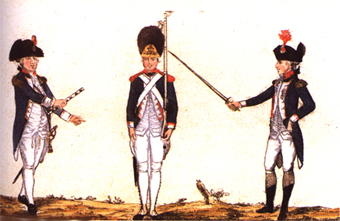 - Now that government funds are pouring in, several events and innovations designed to raise morale and boost public perception take place. New uniforms are instituted. Their parade through the streets of Paris, with Lafayette at the head, is met with loud cheers and the frantic waving of tricolors, caught up in national pride. Several other accolades, like the Medal of Liberty, become valuable trophies among Parisians. - The new regiment from the Army arrives and serves under Lafayette’s direct command in Paris. Despite his best efforts, they do not integrate easily into the National Guard, and few are personally loyal to the man at its head. - Throughout the Picardie region, the farmsteads and castles of the emigres are seized by bands of radical farmers wielding pitchforks and torches ahead of the passage of the Final Contribution Act. Some tenant farmers who had managed to escape the chaos come before the Assembly, slamming one of Babeuf’s pamphlets in front of Robespierre. It calls for the formation of agricultural “collectives” on the emigres’ property, owned by the people, when legally that land now belongs to the state. - Minor protests are held outside the Assembly in early December, almost all sans-culottes, demanding universal suffrage for men and jeering the “Roman auxiliary act” now the law of the land. - The comte d'Estaing, Admiral of the French Navy, begins an effort to recruit women, promising them citizenship and voting rights. Many eager women sign on, particularly women from fishing villages along the Bay of Biscay. - Attempts to force women onto ships with the men are met with complete and utter disgust by the officer corps and the sailors beneath them. The few aristocrats who remain immediately turn in their resignations, leaving the navy entirely without trained officers. Elections held to replace them on every ship in the navy which provide an even mix of incompetents and talented but inexperienced men. - A band of sailors on board the Redoutable openly voice disconcertion with the new women sailors serving with them. Their captain hesitantly threatens them with relocation to the tropics, orders “straight from the admiral himself”. This provokes a mutiny! It soon spreads to large parts of the fleet moored at Toulon, who demand that all efforts to bring women into the navy end. - The Naval Academy at Toulon has somehow managed to lose more officers than it has gained over the last three months due to defections, the recruitment of women, and a lack of pay. The training is thus inadequate at best. The admiral himself, however, becomes widely regarded as an innovator by pioneering the “least costs” method of warfare, one designed to counter the Royal Navy’s numerical superiority by minimizing the size of potential conflict zones and maximizing accuracy and speed. - The court is shamed by the harsh scolding given them by the King, many shocked by the sudden spine the man has grown, and most of them are convinced to stay with their liegelord and follow the path he charts for them. Some even go so far as to renew their oaths of fealty. - Lafayette’s men launch assaults on several buildings interspersed throughout Paris, with no apparent connection between them. They find nothing but damp, decaying furniture and abandoned rooms. - A Christmas feast is held in the Tuileries Palace after mass at Notre Dame, with the royal family presiding and men and women from every class invited, many traveling in miles from the countryside to see their king. Though the palace is overcrowded, quick thinking by the comte de Montmorin secures the surrounding environs for food distribution, and the feast wins the affection of several commoners for both the foreign minister and the King. - In early January, the King publicly denounces de Sade while convening the Legislative Assembly, drawing unflattering links between the marquis and Robespierre. It meets with strong applause from the Feuillant section of the Assembly, but the radicals sit still in icy silence. - In one of his sermons, the Archbishop warns that any attempting or advocating the overthrow of their rightful king will be guilty of grave sins against the Church and God and no longer be capable of partaking in holy communion. In addition, he publicly excommunicates the Marquis de Sade, whose name is quickly becoming a byword for sin throughout the country. The Deist and Atheist strains of Jacobin thought grow stronger, with many radicals wondering why they need a church at all. - At Christmas mass, the Archbishop denounces the Revolutionary Guard, solidifying resistance to the radical group among the uneducated poor. The mildly educated petit bourgeoisie, on the other hand, feel the pressure the archbishop is exerting is beyond his station. - L’Ami du Peuple re-enters widespread circulation as a composed - if radical - counter to the excesses of Le Libertine. Jean-Paul Marat and Saint-Just become its two editors and it spreads quickly among the middle class. - Long shadows are cast over the streets of Paris as strange figures move silently through the night. Some say that a new dark faction has emerged, others that the emigres have infiltrated the government or even your homes. The truth is out there somewhere. - Radical bourgeois ideals begin to spread through Babeuf’s Revolutionary Guard, with a small percentage of them now singing the praises of Robespierre and Saint-Just and urging the Enragés to cooperate with them. - “La Constitution”, a florid piece composed by the Minister of Justice, spreads quickly through the Parisian saloons and comes into direct conflict with the radical republican ethos. Some constitutionalists begin using it as a go-to weapon in their battle against the republicans, and rumors are that Antoine Barnave himself enjoys the piece. - The Parisian Jacobin club hosts a bizarre spectacle as a result of a charity drive meant to counter that of the king. A young man with glazed eyes and a frantic look about him takes the stage, condemnations against French scientists currently investigating the properties of magnetism interspersed between almost nonsensical rants about wands and imps. He is “quietly” escorted from the premises soon after. - The young man is later identified as Alexis-Vincent-Charles Berbiguier de Terre-Neuve du Thym, who soon after publishes a series of leaflets condemning three specific locations in Paris: the personal home of the Grand Penitentiary of the Church of Notre-Dame, the Church of Saint-Roch (on rue Saint-Honore), and the Pont-Neuf bridge, all of which are declared to be demonic. Activity in these areas sees a drop, and tithe collection in the archdiocese suffers. - One man who now advocates du Thym’s strange set of beliefs is the commander of the Swiss Guard, who not only takes him on as a retainer but offers him seven of his own guardsmen for “inquisitorial activities”, calling them the Seven Days of Solomon. They use the guard’s resources to compile a list of practitioners of the dark arts, mostly harmless fortune tellers and the like. In addition, du Thym spends long nights in his private apartments, the rancid reek of Pompeii drifting out of his window and into the streets.. - Antoine Barnave and Georges Cadoudal agree to a series of debates in the Spring, to take place in Toulouse. The announcements are made public, with much fanfare being made of the occasion. - In February, Barnave devotes his time to appeasing Independents and convincing them to join his party. The efforts are appreciated and several join the Feuillants, lessening the blow of recent defections. - Robespierre delivers a passionate speech to the petit bourgeois and working poor of Paris, accusing the King of being the puppet of foreign powers who will invade France at any moment. He uses the King’s opposition to the Final Contribution of the Emigres Act as evidence to support his accusation. The speech is largely undermined by the fact that the King did not veto the bill. When a heckler in the audience points out this fact, he is thrown out personally. - Copies of Le Libertin are placed in Jacobin Clubs outside Paris at the explicit orders of Robespierre himself. This alienates large numbers of Girondists, who view Marquis de Sade as a madman only interested in personal gain. Cracks are beginning to appear within the Jacobin Club. - Brissot is spotted dining with several members of the judiciary. It is assumed all the expensive food, the money passed across the table and smug handshakes are all completely legitimate. Nothing suspicious here. - Girondinist presence sees an explosion in Paris, with the formation of several Girondist salons and party members holding speeches in the streets. These individuals urge moderation. They discourage both violent expression of Republican ideals and the reinstitution of an absolute monarchy. In an increasingly divided France, their rhetoric is a refreshing breath of fresh air for many citizens. Their approval increases. - Robespierre writes several editorials denouncing subversive Monarchist elements within France. He specifically criticizes Cadoudal and accuses him of working with the “Traitor Tuffin”. Rumors begin to spread about Cadoudal’s involvement in the French state. - The Jacobins open up a donation arm to fund Babeuf’s Revolutionary Guard. The Jacobins see few donations because of the group’s general unpopularity. He also tries to expand the Jacobins by purchasing properties across Paris. Limited funds prevent more than a few more locations from being opened. - Nicolas Luckner distributes personal brigades among himself, Jean-Baptiste Donatien de Vimeur and Lafayette of the National Guard. The French public are conflicted regarding this development, with the newspapers spinning the new brigades as personal gangs for the leaders. Others fear the brigades are a sign of France’s continuing spiral into chaos. - The Defense Ministry uses a vast increase in their budget to begin construction on new industrial projects along the Rhine and the Lille region, mostly focusing on military supplies. Construction on these cottage industries will likely be finished by the end of 1792. Many unemployed workers in the region are excited by the prospect of new jobs. -The Bordeauxois Jew who attempted to join the French Army is officially pardoned by Nicolas Luckner. While he technically lacks the authority to do this, the motion prevents local authorities from making the young boy disappear. Future historians are bound to look positively on Nicolas Luckner for his efforts, but many low ranking officials are unhappy that the French Army would place its trust in the killers of Christ. - The Swiss Guard shows up outside the gates of the Luxemburg, demanding entry to investigate the property. The guards, initially hesitant, are convinced when the regiment threatens to bring a cannon and destroy the palace’s grand front gates. The Swiss Guard are horrified to find the manor has been stripped down and gutted. The last 200 years of Paris’s artistic history have been removed and sold. Both the Marquis and his prisoner, the Duke of Bissac have vanished. The Duke’s daughter is less lucky, her abused and naked body is found in the middle of the palace’s chapel, like some hideous offering. - A loyal servant of Marquis de Sade appears at the Ministry of Justice the following day, holding the Keys to the Luxemburg. He is arrested on the spot. Daily reports arrive in Paris of Marquis de Sade in the north of France, gathering a massive army of peasants to assault the city. Their rank is determined by penis length and the fighters have nightly orgies lit by moonlight. These rumors are supported by large arm sales to an unknown benefactor. De Sade reportedly calls his followers the Liberty Guard, but the people of Paris have a much different title: The Cambions. - Several of the valuables from the Luxemburg are rumored to be in the possession of Duke George Leveson-Gower. In Normandy a small sailboat with a figurehead described as a penis instead of a dragon's head at the fore" dropped off a large number of valuables which were then picked up by British workers. - Major von Bachmann of the Swiss Guard takes fifty of his most skilled French soldiers and appoints these as ensigns and captains over the other 400. Under their leadership, these soldiers are instructed to practice field exercises and mock battles. Both sides benefit from the intense training and coordination improves as a result. - Jean-Baptiste creates a new game called, Rochambeau to settle disputes. The game involves hand gestures and shouting either, pierre, papier, or ciseaux. It proves a widely popular among the nobility. - Members of the Society of the Friends of Truth, at the prompting of Olympe de Gouges begins pushing the people of France to support gender equality and to oppose slavery. This receives significant opposition from local officials. The Press begin to paint the society as “the Club of Olympe”, with political cartoons illustrating members as whores and beggars. - Olympe de Gouges writes a number of pamphlets encouraging greater rights for women. In the fallout from the Lady Freedom Act, she is largely overlooked. Her papers do manage to reach a number of sympathetic, upper class noblewomen who feel betrayed by the bill’s failure. - She also writes two plays during this period, the first entitled Jeanne d'Arc and the second, Amazonia. Both of these portray societies dominated by women. Unfortunately, Madame Gouges is unable to find a theatre willing to portray her work. The influence of these pieces is limited. - Louis Phillippe uses his immense personal wealth to purchase food for the working poor of Paris. They greatly appreciate the donations and the Duke’s popularity throughout France increases. Members of the Legislative Assembly grumble that the Duke’s actions should have been unnecessary however, given the passage of the Food Act. They accuse him of trying to undermine the government. - Later, he sends out invitations for a major party to be held at his estate. Large numbers of the French nobility and former aristocracy come to his estate. When they arrive, however, they find nothing but the Duke himself asking them to sit down for his lectures. For the next four hours Louis Phillipe speaks about Rousseau and liberalism to a crowd of bored nobility. - The Citizen Duke makes significant donations to the Legislative Assembly following the passage of the City Guard Act to pay for training and equipment. A good portion of the money goes missing before supplies can be purchased, raising concerns over corruption. - Two-thousand Parisian guardsmen set off from Île-de-France to the historical borders of Brittany. They are met by cheering crowds all around the perimeter of Paris, waving the tricolour and screaming “Vive la France! Vive la Garde Nationale! Vive Lafayette!” - Just outside the Legislative Assembly building, Robespierre is shot three times at point blank range. The assailant is tackled by a passerby, who ironically is later revealed to be nobleman Paul François de Quelen de la Vauguyon, as Robespierre bleeds out on the cobblestone. Thanks to quick thinking the doctors are able to save the radical, but are forced to amputate his right arm. - Rumors spread across French coffee houses that Robespierre has been driven mad by his injuries and is no longer fit to rule the Jacobins. The faction must now decide whether to keep him as their leader, or allow the more moderate Brissot take full control of the organization. - The public atmosphere in Paris is tense following the attempted assassination of Robespierre. People speak in whispers and rarely linger on the street for long. Members of France’s long beleaguered nobility purchase mercenaries to act as their personal guards, in fear of Jacobin reprisal. The Swiss Guard itself has stationed 100 men around the King and his family at all times. - One week following the assassination, King Louis XVI announces to his court that his son will be sent to his brother-in-law in Austria to study the arts. The nobility nod, but behind their smiles they know it is not for the child’s education but his safety that the departure is being made. Escorted by 100 Swiss Guards and Master of Ceremonies Marquis Henri Evrard, the group departs from Paris. Along the way they make frequent stops, courting local leaders and improving the popularity of the monarchy. The young heir enjoys the attention. Queen Marie Antoinette’s mood is far removed from her son’s, weeping around the palace and spending long periods locked in her quarters. For the first time since her arrival in France, the public is sympathetic for the queen. COLONIAL NEWS:  - A letter arrives at the administrator’s quarters in le Cap. It offers the whites within a choice: stay and die, or leave and live. Tensions run high within the isolated city, and many within take the slave general up on his offer, sending their wives and children off on boats towards Port-au-Prince. Others scoff at the very idea of slaves taking a fortified city. - The cannonfire is deafening. For twenty-four days, the old cannon incessantly reigns down upon the city. Sometimes it hits the wall, others a tower, others the governor’s maison. “What is Toussaint waiting for?” the governor’s wife screams one night. - At Cabre House, the rebels are organizing. Many slaves are complaining about the strict regimen Louverture has put them on, and morale decreases somewhat, but it is working. By the middle of December, they can form a simple two-rank line formation. These men are soon sent to le Cap to join the siege, with Toussaint Louverture himself at their head. - The blacks celebrate Christmas Eve outside of the city, with a sympathetic mulatto priest leading them in prayer. On Christmas morning, a cannonball breaks through the city’s gates, and the black soldiers charge into le Cap wielding Spanish muskets. By sheer numbers alone they overwhelm the city’s defenders, and despite Louverture’s orders, the whites in the city are slaughtered and their buildings put to the torch. The tricolor is torn down and thrown into the sea, though they have no flag to replace it with. The next day, as the dust settles, le Cap is declared the capital of a free Saint-Domingue. - Twenty ships of the line and ten frigates are pulled from the Flotte de l’Atlantique and sent across the sea to Saint-Domingue. Passing le Cap, they find the city in ruins, and instead stay to the coast, where they are able to save the residents of several isolated towns spared the attention of the slaves, bringing them to Port-au-Prince and dropping anchor there. - Spanish supplies reach Toussaint in le Cap, after the siege is over. Foodstuffs, uniforms, and muskets are the primary boons. British supplies come later, after the French fleet has left, dropping off a pair of artillery pieces and a mortar. - In late January, Napoleon and his men arrive in St. Marc, the site of France’s most notable defeat in the Servile Rebellion. He wastes no time asserting his command over the local colonials, moving the bulk of them south from the border and forcibly expelling a militia that had foolishly attempted to cross into slave territory. - The forces sent to reinforce le Cap arrive too late. Seeing the city in flames and the tricolor lowered, they quickly about face and return to Napoleon’s command center in St. Marc rather than risk a suicidal confrontation. - French soldiers work through the month to construct a series of small fortifications along the border, manned and staffed at all hours of the day to keep watch for any rebel incursions into the south. - Napoleon foresees a conflict composed primarily of skirmishes, and begins training his soldiers to that effect. Many of the men from the 8e Brigade are loyal to Napoleon and serve well under him, though the men from 4e Brigade have difficulty integrating into Napoleon’s strict command structure. With a series of merit-based promotions, he puts in place an organization that will avoid that problem in the future should more regiments arrive in reinforcement. FOREIGN NEWS: - Secretary of State Thomas Jefferson receives several letters from the Jacobins in France. After being asked to appear before Congress, he unfurls the messages and demands the US government support the French people. “The tree of Liberty must be watered with the blood of tyrants!” he proclaims over the screams of Alexander Hamilton in the gallery. President Washington calls for order and threatens to remove both gentlemen from his cabinet if they cannot settle their rivalry. - Franco-American Friendship societies open in Charleston, Richmond, and New York. They attract many from Thomas Jefferson’s increasingly formal “Anti-Federalist” movement, though sizable donations have yet to come in. - The Treaty of Jassy ends the five-year long Russo-Ottoman War, with Russia’s dominance in the Black Sea all but formally recognized. Russia begins to look towards Eastern Europe for prestige and influence... - After heated discussion, the United States of America narrowly ratifies the Bill of Rights. These twelve amendments will serve as the basis for all future constitutional revisions. - Several nobles in Prussia and Hannover, after hearing of recent events in France petition their government to intervene on behalf of the Bourbon monarchy. The monarchs of these nations state they will not move without the approval of the Holy Roman Emperor, who has been asked by the French King himself to remain distant from the conflict. - Thanks to the efforts of Armand Marc, comte de Montmorin and the choice of Louis XVI to entrust his child with Austria, relations with the Holy Roman Empire have improved. The situation remains unstable, but for now relations are tentatively cordial. - Louis Stanislas Xavier begins assembling an army in the Austrian Netherlands composed of emigres, former members of the French Royal Army, mercenaries and sympathetic monarchists across Europe. They begin training for intervention into France. - French diplomats attempt to persuade the Emperor that King Louis XVI is still in control of his government and at no risk. The Emperor seems persuaded by their arguments, but his son, Francis, disagrees.
|
| # ? Nov 15, 2012 05:33 |
|
La Nation, la Loi, le Roi- A France NationSim 320x213 Country: Royaume des Français (Kingdom of the French), established 3 September 1791 by the ratification of the French Constitution by King Louis XVI Foreign Relations: Somewhat good relations with the United States of America, somewhat poor relations with the Holy Roman Emperor, exceptionally poor relations with the Kingdom of Prussia, extremely poor relations with the Kingdom of Great Britain. Declaration of Pillnitz by Austria and Prussia a standing issue. Population: 28,000,000 Year: Spring 1792(turns represent 3 month seasonal cycles) Metropolitan France 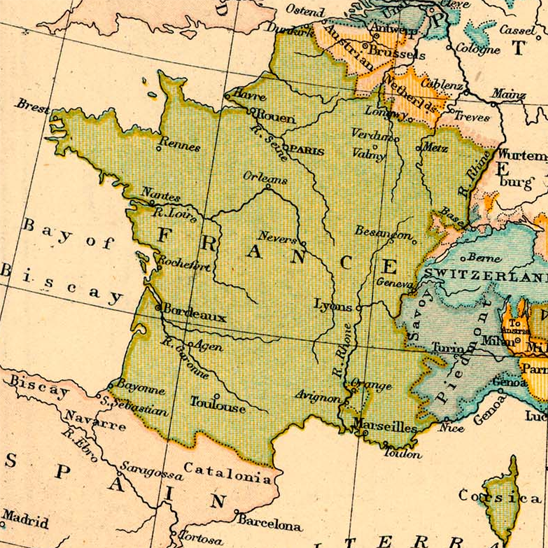 548x548 Saint-Domingue 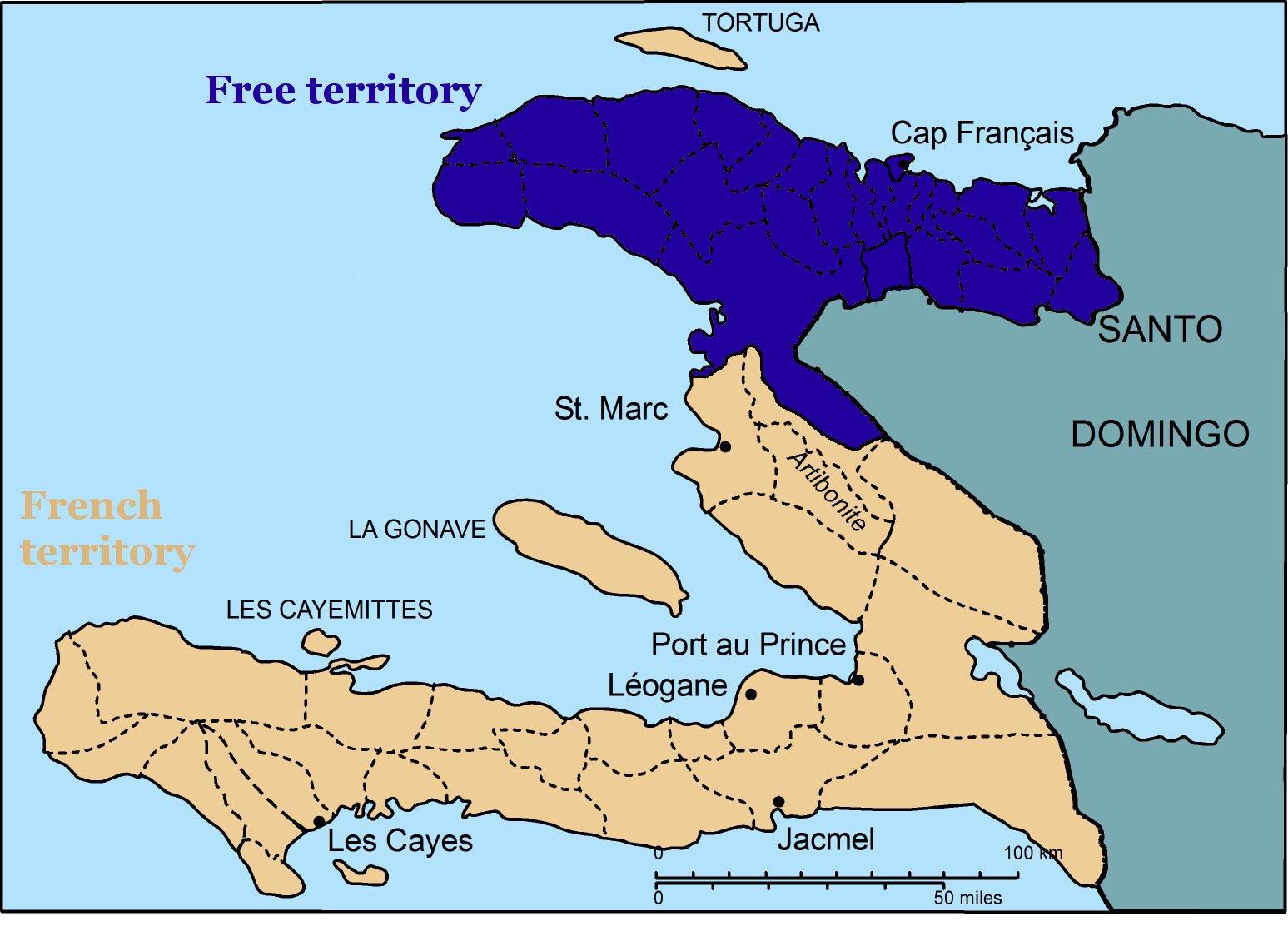 1547x1136 Brittany 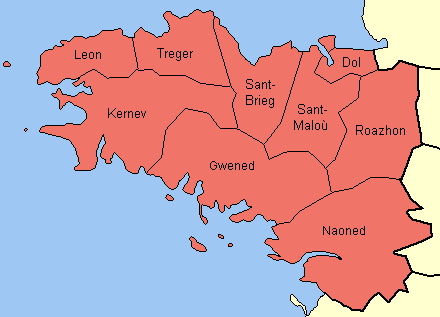 =Economy= - =Economic Sectors= Agriculture: 72% Manufacturing: 20% Trade: 8% Growth Rate: -1% = Unemployment: 21% =Government=  320x213 The Constitution of 1791 severely limited the nobility's authority. The King reserved some rights, such as the royal veto, but the ability to exercise this right seriously undermined the King's popularity in government. The writers of the Constitution struggled to balance royal power with popular sovereignty. - Popularity: Mediocre System: Unitary Constitutional Monarchy 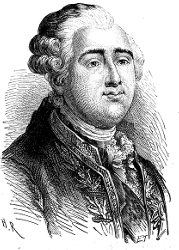 179x250 King: Louis XVI de Bourbon/Gantolandon (gantolandonsa@gmail.com)
Laws of Succession: Agnatic Primogeniture Heir Apparent: Louis-Charles de Bourbon (unplayable, in Vienna) Legislative Assembly: 745 Seats (166 Feuillants, 333 Jacobins, 245 Independents, 1 Enragé) Elections: Members of the Legislative Assembly are elected every two years. 247 are chosen from each department, 249 are elected nationally and 249 are chosen on the basis of tax revenue. Suffrage: All men who pay annual taxes equal to or greater than the local wages paid for three days of labor, over the age of 25. Soldiers are exempt from all requirements but age after two years service. For National Guardsmen, similarly, but six years service. =Cabinet= The choice and dismissal of Ministers appertains solely to the King. The members of the Legislative Assembly may not be appointed. All powers exercised by the King must be signed by at least one minister before it can take effect.  184x250 Minister of Foreign Affairs: Armand Marc, comte de Montmorin/Rincewind (blriley@gmail.com) The Minister of Foreign Relations is tasked with maintaining relations with foreign nations and the protection of French citizens abroad. He is nominally considered to be the Prime Minister.  192x250 Minister of War: Nicolas Luckner/OscarDiggs (oscardiggssa@hotmail.co.uk) The Minister of War has total control over the French Army and is responsible for the protection of French border provinces. Given international hostility toward France, the execution of this duty may be difficult. 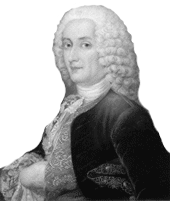 170x201 Minister of the Marine: Claude Antoine de Valdec de Lessart/Brillo_Pad (tripleultima@gmail.com) The Minister of the Marine has jurisdiction over all seafaring French vessels and the colonial territories. It is his duty to ensure the protection of trade.  215x292 Minister of Justice: Marguerite-Louis-François Duport-Dutertre/ZearothK (zearothk@trioptimum.com) The Minister of Justice is responsible for all judicial affairs within France and ensuring the rule of law is maintained. Due to the chaotic nature of French internal affairs, the Minister will have to balance the orders of the King and Legislative Assembly.  219x283 Controller-General of Finances: Jacques Pierre Brissot/Freudian (i.bindley at g-mail). The Controller-General is charged with maintaining state finances, agriculture, industry, commerce, roads and estates. Due to the poor state of the French economy, the position is in a state of turmoil and officials here rarely last long. =Factions=  - Club des Feuillants  234x250 Constitutionalist, led by Antoine Barnave/IPlayVideoGames (vhramis at gmail.com ) The Feuillants are considered the ‘moderates’ of the French Revolution. These officials believe in the preservation of the monarchy in its current limited form and promote decentralization. Their headquarters is located in a former monastery on the Rue Saint-Honoré in Paris. Represented by the colour blue. - Club des Jacobins  188x250  219x283 Radical Republican (Montagnard) wing led by Maximilien de Robespierre/sniper4625. Liberal Republican (Girondin) wing led by Jacques Pierre Brissot/Freudian (i.bindley at g-mail). The faction is roughly evenly split. The Jacobins are the radicals of the French Revolution who want the complete dissolution of the monarchy and to further centralize the French government. However, the group is divided further into two bickering wings, with the Montagnards believing in immediate dissolution of the crown and the Girondins preferring to keep the King until the nation stabilizes. Their headquarters is located in a former convent on the Rue St. Jacques in Paris. Represented by the colour red. - Monarchistes Français  194x250 Reactionary Monarchist, led by Georges Cadoudal/Arujei (rjohnlennon@gmail.com) Although they are not represented in the Legislative Assembly, this group represents an alliance between members of the former aristocracy, who wish to see a return of the absolute monarchy and landed aristocracy, and marginalized minorities like the Bretons who chafe under the centralization of the state. Although many fled following the ratification of the Constitution, those who remain in France have strong funding from outside parties. Both Jacobins and Feuillants are terrified of these émigrés because of their ability to influence French politics. - Les Enragés  236x302 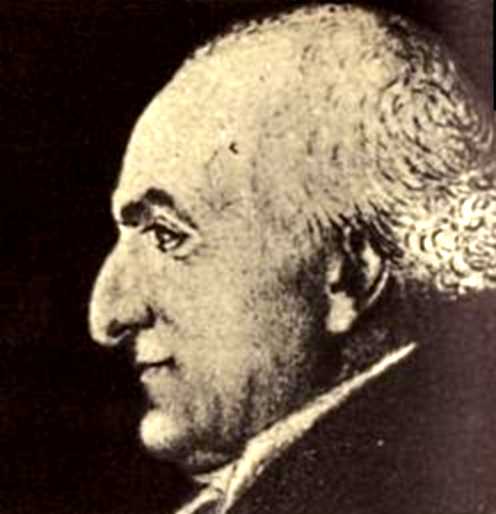 496x514 Babeufist (Populist Left), led by François-Noël Babeuf/A RICH WHITE MAN/(moodinconsistency at gmail) and Jacques Roux/Stalingrad (stalingradlenin@gmail.com) The crippling bread prices and a general lack of work in Paris have given some popular support to a movement that might otherwise have been a footnote of history. Even further to the left than the Jacobins, the Enragés rely on the support of the common man and encourage a thoroughly radical revolution. . Departments: Following the ratification of the French constitution, the provinces of France were destroyed and the lands of the aristocracy dissolved. In their place, the Legislative Assembly established 82 departments. Each department is ruled by an Administrator and receives three representatives in the Legislative Assembly, except Paris which receives only one. =Newspapers= L'Ami de la France Editor: Antoine Barnave Ideology: Constitutionalist Readership: mostly in larger cities - Paris, Lyon, and Marseille especially. Widely read by the middle class, some readers in the aristocracy. Headlines: “THE STATE OF THE BUDGET”, “RETURN OF THE EMIGRES”, “THE FUTURE OF FRANCE - JUSTICE FOR ALL” L’Ami du Peuple Editor: Jean-Paul Marat/vacant and Saint-Just Ideology: Radical Republican Readership: Middle class exclusively. Headlines: “NO QUARTER FOR THE PRUSSIANS! FRANCE MUST STRIKE”, “100% CONFISCATION, 0% OF A PROBLEM” Le Libertin  250x250 Editor: Donatien Alphonse François, Marquis de Sade/Fall Sick and Die (ccferrara@gmail.com) Ideology: Radical Republican Readership: the petit bourgeoisie and urban laborers. Read almost exclusively in Paris. Headlines: “OUR INCESTUOUS LIEGE, AN IMAGINED JOURNAL OF THE INTIMATE FORNICATION BETWEEN LE BROTHERS ROYAL”, “LET CHRIST BE HUNG ONCE MORE UPON THE CROSS - JEWISH CITIZENSHIP”, “THE WEAKER SEX, FORCE YOUR WIFE AND DOUBLE YOUR VOTE”, “THE KING'S BROTHER - FRANCE'S IMMINENT PERIL, WILL OUR KING DEFEND OUR LIBERTIES? THE ANSWER IS NO” =Military= 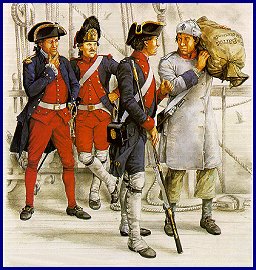 The reformed French military in 1791 required well-trained officers, disciplined soldiers and freethinking non-commissioned officers. Due to the collapse of the nobility, of which the army had been dependent on, the French military lacked all three of these qualities. The result was a poorly organized, poorly disciplined fighting force. 1792 Reglement  192x250 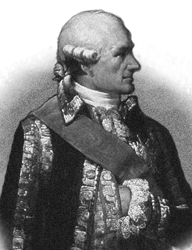 192x250  194x250 Maréchal de France: Nicolas Luckner/OscarDiggs (oscardiggssa@hotmail.co.uk) Forces: 94,250 soldiers, 11,000 cavaliers, 290 cannons Organization: 2 corps, 10 brigades, 50 regiments, 500 companies --- l’Armée du Nord [assigned 37500 soldiers. stationed near Lille. commanded by Jean-Baptiste Donatien de Vimeur, Comte de Rochambeau/stalin-chan (stalin@c0balt.com)] --- l'Armée du Rhin [assigned 37500 soldiers. stationed by the bank of the Rhine. commanded by Alexis Le Veneur de Tillières/vacant] --- l’Armée Expéditionnaire [assigned 9225 soldiers, 30 cannons. stationed in St. Marc. commanded by Napoléon Bonaparte/YF-23 (yfaltmiau at hotmail dot com)] Situation: Low morale, newly implemented army structure untried and causing disconcertion in the ranks Volunteer regiments suffer from a complete lack of training and discipline. Rate of recruitment increased thanks to Suffrage Act. French Navy  219x250 Admiral: Charles Hector, comte d'Estaing/tatankatonk (tatankatonk22@gmail.com) Forces: 71 ships of the line, 61 frigates, 45 corvettes, sizable merchant marine Organization: 2 fleets, several smaller patrols --- Flotte de l’Atlantique [assigned 40 ships of the line, 30 frigates. based in Brest. commanded by Louis Thomas Villaret de Joyeus/vacant] --- Flotte de la Méditerranée [assigned 31 ships of the line, 26 frigates. based in Toulon. commanded by Louis-Armand de Rohan Constantine/vacant] Situation: New command structure, many remaining officers skeptical. State of mutiny in the Flotte de la Méditerranée. after women brought into the navy. Many vessels in disrepair. Efforts to develop a more advanced gunnery technique underway. Swiss Guard 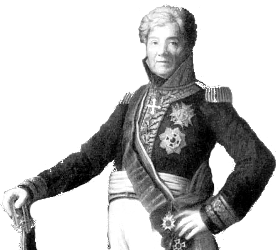 276x250 Oberst: Major Karl Josef von Bachmann/Enjoy (sw_faulty at hotmail dot com) Forces: 930 guardsmen, 450 soldiers Situation: Highly trained, highly effective mercenaries serving as the King’s personal guards. The Swiss Guard have defended the monarchy since 1480 and are one of the most feared fighting forces in Europe. The Swiss Guard is currently experiencing difficulties integrating the Frenchmen in their service. National Guard  246x250 Commander-in-Chief: Gilbert du Motier, Marquis de Lafayette/ a bad enough dude (ehoovestol@gmail.com) Forces: 46,000 National Guardsmen, 12 American advisors, 12 cannons Situation: Somewhat high morale, but poorly organized. Training is underway and discipline steadily improving. Recruits are drawn mostly from the middle class, with some among the poor. =Foreign Threats=  L’Armée des Princes Commander: Louis Stanislas Xavier, Regent of France and Navarre Sponsors: Kingdom of Prussia Forces: 1000 infantrymen and a squadron of hussars Situation: Recruiting in Brussels. Excellent training, decent morale. Hussars are well-armed, infantrymen poorly so. =Rebellions and Militias= Ar Diebiñ Bretoned Leader: Steward of Brittany, Charles Armand Tuffin, marquis de la Rouerie Commanders: Charles Armand Tuffin Ideology: Breton Nationalism / Conservatism Popularity: 20% in Brittany Forces: 2500 peasants, 40 noblemen Situation: Recently distributed muskets and farming instruments. Aid coming in from unknown source. Some training. Good morale. La Garde Révolutionnaire Leader: François-Noël Babeuf Commanders: Hidden Commander/? Ideology: Babeufism / Women’s Liberation Loyalties: Mostly Enragés, with some Jacobin sympathies Popularity: 5% in Paris Forces: 700 sans-culottes, 300 “working women” Situation: Volunteer militia formed after the March on the Champs-Élysées, made up of disenfranchised peasants and artisans. Recently founded women’s brigade attracting feminists. No training, decent morale. Liberty Guard/ The Cambions Commander: Marquis de Sade Ideology: Far Left/ Anarchism Popularity: 2% in Paris Forces: Unknown Situation: Volunteer militia recruiting in northern France. Poorly trained, decent morale. The people of France are terrified of the Marquis's inevitable return to Paris and have taken their security into their own hands Haitian Slave Revolt Leaders: Several, in disarray 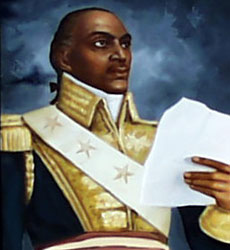 230x250 Commander: Toussaint Louverture/EccoRaven Ideology: Abolitionist Popularity: 85% among black Haitians, no support in Metropolitan France Forces: 28,000 slaves, 3 cannons, 1 mortar Situation: Morale is high, training is poor but improving. Occupying most of northern Saint-Domingue and sporadically attacking the whites there. Receiving arms and supplies from the Spanish and British. Other Important Individuals and Groups: Archdiocese of Paris With the confiscation of church property and the subjugation of the clergy to the state, the influence of the church hierarchy on France is theoretically minimal at best. In reality, however, many voiceless Catholics still place their church first, and no one is in so good a position to take advantage of that trust as the Archbishop of Paris.  173x250 Archbishop: Antoine-Éléonor-Léon Leclerc de Juigné/Cozy Hemp Mines (Cozyhempmines at googlemail) American Embassy to France Although he may not wield significant power on the European stage, the American ambassador and his government serve as symbols of democracy and republicanism. 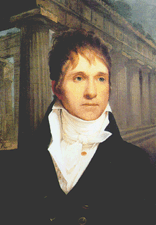 Ambassador: William Short/Tao Jones (sa.taojones at gmail) British Embassy to France Along with setting British foreign policy concerning France, the current ambassador also has a vast amount of personal wealth to draw upon. 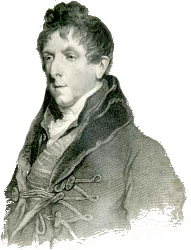 191x250 Ambassador: Duke George Leveson-Gower/Incy (incysa at gmail) 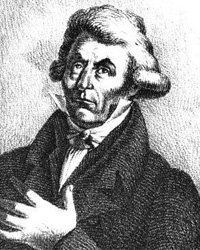 200x250 Alexis-Vincent-Charles Berbiguier de Terre-Neuve du Thym/Sword of Damocles (praeaton@gmail.com) A “demonologist”, this man has recently been seen in the company of the Swiss Guards.  216x268 Marie Gouze/Maxico Roberto (maximo . roboto on Gchat) Although initially in support of the Revolution, Marie Gouze was disenchanted when she learned women would not be allowed to participate. She is an influential writer in Paris but extremely controversial. 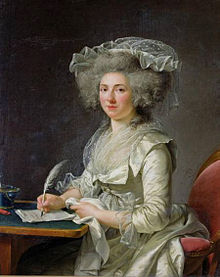 220x277 Madame Roland/vacant The wife of noted Jacobin Jean-Marie Roland, the Madame exerts a great deal of influence over her husband and through him the members of the Legislative Assembly.  221x250 Louis Philippe II, “Citoyen Egalité”, Duke of Orléans/Colonel Wood (sacolonel.wood at gmail.com) Louis Philippe is notable for being one of the few members of the French nobility to actively support the revolution and is second-in-line for the throne if all emigres are excluded. Both sides distrust him for his unconventional politics.  237x250 Louis Antoine de Saint-Just/Epicurius (epicurius at aol.com) Louis is a young, up and coming star within the Jacobins. He has publicly called for the execution of all monarchs, a terrifying idea for most of France. 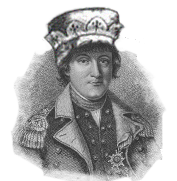 Steward Charles Armand Tuffin, marquis de la Rouerie/Gorgo Primus As a veteran of the American Revolution and newly proclaimed Steward of Brittany, Tuffin is perhaps the most powerful Breton in France. He is a controversial figure in Paris, with much of the lower class sympathizing with his revolution  245x250 Charles Maurice de Talleyrand-Périgord/Götterdämmerung (wafflepoet at gmail dot com) Charles Maurice is a member of the minor aristocracy in France but has devoted his life to far more revolutionary ideals. He participated in the writing of the Declaration of the Rights of Man and proposed the Civil Constitution of the Clergy.  183x250 Louis Stanislas Xavier, comte de Provence/Takanago (ktakanago@gmail.com) The younger brother of the King of the French and the de facto leader of the émigrés outside France. His recent declaration of regency is a threat to the stability of the country and is currently recognized by the Kingdom of Prussia. =Stats=  Agriculture: Undercapitalized with below average average crop yields. Poor harvests have lead to unfavorable conditions for local markets. Situation improving. Industry:: Mostly textiles, with some mining and metalworking. Stabilized somewhat by ample subsidies and an influx of cotton from America. American markets also proving quite amenable to French manufactures. Food: Mild famine has resulted in a massive spike in prices but agricultural investments have resulted in a minor improvement in diet. Brittany is struggling heavily but surviving. Nobility and bourgeois eat well. Labor: No restrictions on working hours or hiring practices Education: 45% literacy for men, 32% for women. Based on the apprenticeship system, with Catholic seminaries being used as an alternative for poor families. Private tutors used for nobility. Public Health: Major cities contain small sewers but require updated water systems. Health care largely provided by the clergy. Crime: Approximately 3,660 officers are used to defend strategic sites like the palace, royal mint and major roadways. Well-organized and trained but corrupt. Trade: France receives a large influx of goods from her colonies. However, her exports have fallen out of favor within Europe itself. America recently established as trade partner. Colonies: Mostly in the Caribbean and India, holdovers from numerous unsuccessful wars against Britain. Slavery is widespread and forms the lifeblood of the overseas economy. Revolt in Haiti threatening to destroy the sugar trade. Finance: Assignats have largely replaced the livre as the de facto currency of France. Mild inflation due to overproduction of paper money. Urbanization: Less than a quarter live in cities. Population growth primarily in rural areas. Religion: Catholics dominate political life but Calvinists and Jews are tolerated. The Civil Constitution of the Clergy makes priests direct employees of the state. Ethnic Groups: 48% French, 44% Occitan, 7% Breton, 1% Corsican. Official toleration of local languages but increasing momentum towards French as the sole language of the state. =Budget= Due to the poor economic policies of the monarchy, the treasury of France was bankrupt by the time the Constitution was enacted. In order to ensure economic stability, church property was forcibly seized and used as a standard for the currency. Despite the decrease in royal power, a large portion of the yearly budget was used to build and maintain the property of the nobility. As a consequence of underfunding the police and low accountability among tax collectors, Revolutionary France often had difficulties collecting taxes. quote:Contributions Directes:
|
| # ? Nov 15, 2012 05:34 |
|
The Elective Duchy of Brittany's Declaration of Independence - December 1st, 1791 posted:In hac die, Sancte Tuduale, tuam intercessionem precationesque quaesumus pro nostra salvatione. Amen.
|
| # ? Nov 15, 2012 05:40 |
|
 People of Paris! The foul assassin who attempted my murder only took my arm, not my mind! Those behind this crime will be brought to justice, and those who would seek my political destruction will know that I am still very much able! Addendum: Nicholas Luckner, stop being a bad man. Turn the wealth of the enemies over to the Assembly, thank you. General de Lafayette, the Jacobins firmly support your efforts to crush the Breton Rebellion. Go with the fervent best wishes of the French People!
|
| # ? Nov 15, 2012 06:03 |
|
Alexis-Vincent-Charles Berbiguier de Terre-Neuve du Thym Final excerpts from the speech held at the Jacobin Club and on Rue Saint-Honore after being escorted out posted:...so I want everyone here to remain observant of bellows and wands that possess magnetic qualities. Such things are often used in both mind control, propulsion of goblins and the maintenance of the illusions of he-goats, whose empty skins must be regularly filled with air. These goblin scapegoats and sorcerers permeate the streets of the city, blocking the flow of the spirit of God like coagulated phlegm blocks the veins of a man. Even I have been accosted by them on numerous occasions! Occult practices and the possession of such magical objects must be brought to an end. Watch for the signs, for you have no way of knowing if someone has been influenced in such a manner or if they are nothing but enchanted bags of leather filled with dark intentions and elfish vapours. They will try to stop you! Their presence is strong here, and they can resist the effects of sulphur to a great degree. The consumption of their being to either the glare of the bonfire or the shine of sulphur is inevitable!
|
| # ? Nov 15, 2012 06:11 |
|
 I'm not going to lie, y'all didn't burn down your boats and kill everything in sight as soon as the ladies stepped on the deck, so a mutiny? That's better than expected, I guess. Alright, here's whats up. I know you sailors are like, way uncomfortable with women serving with you on ships, even though it seems like that's kind of bullshit, because you sure as hell aren't uncomfortable living with them, on land, when you turn back into normal people. Anyway here's what's going to happen. Women are going to be restricted to serving on auxiliary craft and manning shore stations in administrative capacities. You are going to go back to work, and be thankful that capital punishment has now been abolished. I'm an old sailor, and I know what we in the Navy need, so I'm also going to secure more funding for the Navy and pay raises for everybody. But we've got to keep on our toes, goddamnit! You bet your ass things are gonna come down the pipe that maybe you don't understand, but you're in the Navy, and you better obey, or next time I'm going to sink your fucking ship!
|
| # ? Nov 15, 2012 06:15 |
|
 To His Holy Highness Louis Bourbon, Sixteenth of His name, King of France, Navarre, and Brittany, and to the French Legislature I don't know if you guys realized this between summoning demons and getting shot but ships cost actual money to run, and the Navy needs to be fully funded if you want us to be able to do anything if someone with another navy decides to fight us. As part of the steps I have taken to improve working conditions for sailors, every sailor will be getting a sizeable raise, and a pension system will be established. Training a new generation of officers also costs money, and we need to repair a bunch of shit or the next time we try to sail to Haiti we're going to sink and then you people will come up with something stupid like The Unsinking Act of 1795 because you literally cannot function without introducing legislature but all you will get is the cold stony silence of the Atlantic Ocean flipping you the bird. Please give me more money, thank you.
|
| # ? Nov 15, 2012 06:37 |
|
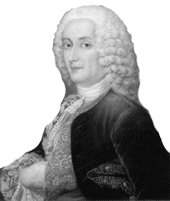 This is outrageous, I've just returned from vacation in Italy to find women are being allowed on our ships? This has to stop at once. I would agree that the sailors should get a pay raise, when they can stop pinching the cargo and wasting time keeping our ships in harbor. Until then, all women must be immediately discharged and regular operations will continue immediately
|
| # ? Nov 15, 2012 06:52 |
|
 Steward Charles Armand Tuffin, marquis de la Rouerie Steward of the Throne of the Elective Duchy of Breizh/Brittany for Duke Luis II Letter to Paris posted:Dear French Government,
|
| # ? Nov 15, 2012 06:52 |
|
 Marquis de Lafayette, Commander of the National Guard Excerpt from speech to the Citizens of Paris Under vague threats from elements of the military and his Majesty's cabinet, I did not march against the rabble in Brittany - I merely stationed a small detachment of Guards along the border in the case of an emergency. It seems this emergency has occurred. Misguided peasants have managed to seize a large portion of France with aid and arms from foreign sources, certainly the work of our tyrannical enemies. My cautioned approach to this minor rebellion has been decried by some in the military as treason. It seems they believe defending France from those who would tear her apart is somehow a sin against her. These commanders have even threatened to march on Paris! It is more than absurd that the Army of France would wage war on France in the name of an upstart rebellion against France. In fact, it would be treason of the worst kind! In defense of France, I call on the Assembly to endorse actions to be taken against the rebels in the northwest! In defense of France, I call on the King to condemn these traitors! In defense of France, I call on the military to side with its country and aid me in restoring French Honor! Aux armes, Citoyens! 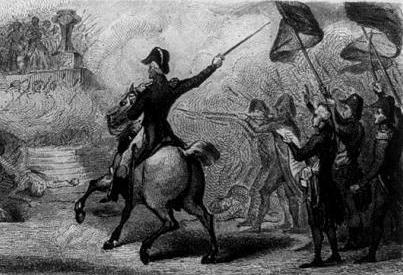
|
| # ? Nov 15, 2012 07:08 |
|
Georges Cadoudal From "Letter to Monsieur X. of Lyons, Lawyer and Antiquarian" posted:Ah, mon ami, it has been too long since we have had pints of beer after a day's walk in the country, discussing the history of our kingdom! Know that those happy memories sustain me in my labors, and that should peace again reign in France, I shall be delighted to spend crisp winter days with you again. Open Response to His Accusers posted:In recent weeks, Monsieur Robespierre, whom I pray will recover from his grievous wounds, has accused me of being a subversive monarchist, and has spread rumors that I am involved in the government of the Kingdom. To the former charge, I might ask him to read some of my public writings and speeches, for he will see that I am no occult subversive! Is a man, who prays every day for the good health and salvation of not only the King, but the nobility, the clergy, the tradesmen, the peasantry, subversive, when it is by the prayers of men that God might see fit to bless us all with peace? Am I subversive, to call for virtue and wisdom in governance, rather than vice and folly? If I am subversive, it is not to France, it is to the men of sin in the assembly!
|
| # ? Nov 15, 2012 07:37 |
|
 Steward Charles Armand Tuffin, marquis de la Rouerie Steward of the Throne of the Elective Duchy of Breizh/Brittany for Duke Luis II Letter to President Washington, USA posted:December 12th, 1791
|
| # ? Nov 15, 2012 07:46 |
|
Letter from Alexandre Pétion to Toussaint Louveture, dated January 1792. My friend Toussaint, I have expected your letter for some time. If anything, I am surprised it came so late - but I suppose you are quite busy with this war and all. I admit, I am not the consummate general - the thought of so much violence and bloodshed by my hand still makes me ill, and seeing the faces of those who are about to die fills me not with pride or indifference but with pity. You alone were responsible for our victory in le Cap, Toussaint; had I lead, we would surely have failed, and this revolution would be over before it'd began. I confess that I am a far better administrator. If you recall, my father sent me to the Academy in Paris, and I'm very good with numbers and letters. Had this revolution never began, I'd likely still be there today. While I cannot help you much on the front, I want to do whatever I can to stem the chaos behind. If there is anything that comes to mind, please tell me - I am in your capable hands. Sincerely, A. Pétion A week later, Alexandre would be appointed the first Free Governor of le Cap, and by proxy, the main civil authority for the majority of Free St-Domingue.
|
| # ? Nov 15, 2012 08:08 |
|
Georges Cadoudal Letter to Pope Pius VI posted:Your Holiness,
|
| # ? Nov 15, 2012 08:37 |
|
 Let the Jacobins be the first to respond to the patriotic call of Lafayette! I hereby propose the Breton Rebellion Act, declaring the departments of Brittany to be in open rebellion against the nation of France, and authorizing the National Guard of France to take any and all steps to restore order. I reject the notion that their so-called "Declaration of Independence" is anything but a declaration of their desire to return to personal rule by the King. If they had their way, we would see not the rational Departments of France, but innumerable tiny kingdoms, with the only possible linkage being under the King. Unacceptable! France is one, and shall forever be so! A letter to Jefferson posted:Monsieur Jefferson,
|
| # ? Nov 15, 2012 13:30 |
|
OOC: I'm off to sléép but just want to rémind QPQ not to forgét my pénis-shapéd dromon, or as I call it, my Fagship, whén hé notés my militia. Oncé I havé somé moré détails about my Arméé du Libérté I'll bé making some posts!
|
| # ? Nov 15, 2012 15:03 |
|
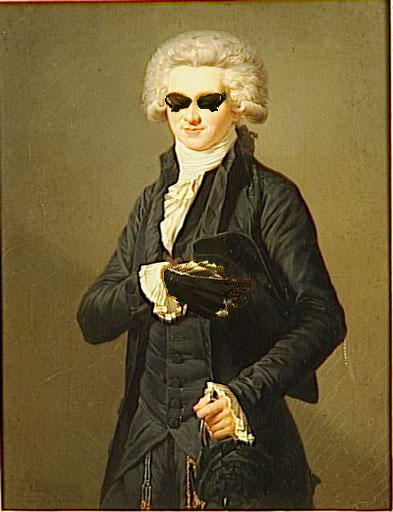 Fellow Assemblymen, Members of the Jacobin Club, People of France! I never asked for this. I did not ask to be gunned down in the street by some servant of reactionism. I did not choose to have the burden of defending the integrity of France thrust upon my and my compatriots shoulders. If I were to choose, I would have chosen peace. However, the choice has been made for us - it is to be war. What a shame. Let my recovery from death's door serve as a metaphor for the imminent rebirth of France! I call upon all loyal Frenchmen, Feuillant, Girondin and Montagnard alike, to rally to the Tricoleur and stand for a united France! Forward Lafayette! Down with the rebel! Vive la France! I will close with a call for co-operation and reason among the Assembly - we we cannot work with each other, what hope do we have for gaining the trust of the People of France. Let this Breton Rebellion be a wake up call - we are responsible for the governance of the people, and we must diligently exercise our powers.
|
| # ? Nov 15, 2012 15:56 |
|
 Yeah, RIP.
|
| # ? Nov 15, 2012 16:40 |
|
 Louis XVI, by the Grace of God, King of France and Navarre Messieurs! First of all, as a King, it is our duty to strongly condemn the assassination attempt on Monsieur Robespierre. It is a dishonorable, cowardly way of dealing with enemies, unacceptable in any civilized country. Regardless of our dislike for Monsieur Robespierre, we wish to have see this matter investigated and punished. We hereby request Monsieur Duport-Dutertre to supervise the investigation. We would also wish to call for immediate capture and trial of Marquis de Sade. This monster did not only steal every valuable thing from Luxemburg, but raped and tortured the Duke's daughter. The fact that he has ever been the Chancellor-General of Commerce is a stain on our conscience. The crown will do everything in its power to bring this vile beast to justice. These events, and the matter of dangerous radicals arming themselves on the street of Paris has convinced us that our current means of detecting subversive element is not adequate. Therefore, we establish a new branch of the police, la Garde Vigilante, under command of the Minister of Justice. They will work diligently in secret, seeking out the enemies of the state and turning them to other branches of the police. As for the Breton problem, we urge you to reconsider your stance. The whole crisis was caused by a set of irresponsible radical policies. The terrible budget of de Sade was the straw that broke the camel's back. Still, we consider their proposition satisfactory, considering the alternative. Let's face it: our country has detoriated to the point when a war, even a minor one, is going to be risky. The people are still hungry. Our economy has just begun a slow recovery, The army is not ready yet. What's most important, we have spent a lot of time and resources to convince the Holy Roman Emperor to ignore our brother claims, because the country is stable. His son and heir is still unconvinced. A civil war would undermine everything we achieved, and put us in danger of Austrian and Prussian intervention again. You will drag the Frenchmen into an another war which will ruin the country, just because of your pride and inability to compromise. We have already used our veto prerogative to save the country from a war it can't win. It is time to do that again.
|
| # ? Nov 15, 2012 16:44 |
|
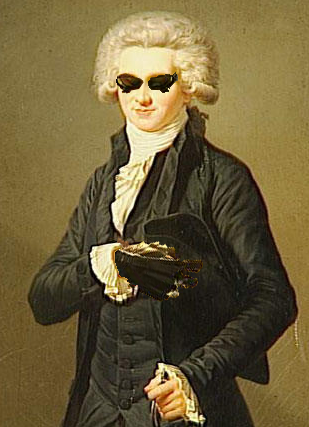 While I am grateful for the King's concern, I must take issue with several of his other statements. Where is the condemnation for General Luckner, who has enriched himself with the wealth that should rightfully be flowing into the coffers of France? Why would you veto the attempts of the Assembly to keep France whole? Would you see France broken up into feudal duchies and counties? Would you see us regress? The Breton Taxes have been lifted, there is no longer a cause for revolt! You speak of compromise, but there are only two choices here - either France is whole, or it is not. What do you choose? Finally, a secret police? Such a body should be responsible to the Assembly, and thus the people, not the King! 1
|
| # ? Nov 15, 2012 16:55 |
|
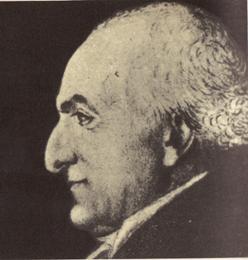 There are those who have claimed the Enragés are stubborn, unmoving, I say this is not true, co-operation with the Jacobins is something we agree is a must in the aim to remove the king and form a truly free republic. There are 2 words all of the radical forces agree on, Liberté and Egalité. On Liberté, Liberté is the heart of the Jacobin movement, I personally will work with he Jacobins on all issues of Liberté, as long as one Liberty is not at the expense of another, as that would be a corruption, in that, the Jacobins will always have my support, no matter to their bourgeois nature. On Egalité, Egalité is the home of the Enragés, it is the most important word to all of us, to Babeuf as an intellectual man of high moral character, and to myself as a man of God, and of course, to the working men and women of France, the Jacobins, I hope agree with us on most principles, although they may not work with us on others, that is their right. But a third word is missing, some say Fraternité, some say Raison, some say Justice, I say, Unité is the true third word, it is reason, justice, and a higher form of Fraternité as it in its very wording accepts the work the great Women of our nation have put into the revolution, and to our rising Republic. So, Men and Women of the Left, Enragés and Jacobin, I say to you, Liberté, Egalité, Unité!
|
| # ? Nov 15, 2012 17:07 |
|
 Louis XVI, by the Grace of God, King of France and Navarre While we do not condone Marshall Luckner's behavior, it is hard to issue a condemnation, given the fact he did not break the law in any way. You may wish to reword your defective act and we will not attempt to veto it. This is something which is in your prerogative. As for the matter of Brittany, it's pretty obvious the milk has been spilled. The Assembly chose to tease the Bretons in the most dangerous moment possible. Now we can have a friendly, autonomous duchy which still gives France some benefits, or a ruined, war-torn district full of resentful people who hate us and will stab our back whenever they have a chance. That chance will most likely come if the Emperor finds our country unstable and decides to back up Louis-Stanislas' claim. Then there is the issue of the secret police. It is obvious it can't be directly controlled by the Assembly, because of the secrecy involved. Still, keep in mind that it isn't directly under control of the crown and the Assembly allots its funding. You can also pass acts influencing its objectives.
|
| # ? Nov 15, 2012 17:44 |
|
 Oscar Diggs is out of the game! We're sorry to see you go, it was fun playing with you, and you can return at any time. The King must choose a new Minister of War to replace him, and new Maréchal must be chosen to head the army. These should ideally be two different people, given administrative concerns. Oscar Diggs is out of the game! We're sorry to see you go, it was fun playing with you, and you can return at any time. The King must choose a new Minister of War to replace him, and new Maréchal must be chosen to head the army. These should ideally be two different people, given administrative concerns.  Post Mortem posted:
|
| # ? Nov 15, 2012 18:29 |
|
Georges Cadoudal From "Fiscalité et Histoire" posted:...Monsieur Robospierre has spoken at great lengths concerning the attempted taxation and destruction of Brittany. In his argument, with the onerous taxes present no more in the budget, there is no more cause for the Bretons to seize just government. I wonder sometimes if he thinks we are goldfish, unable to remember what has happened to us five seconds ago, because that is the only way his claim approaches sanity! The taxes may not be in the budget, but I ask you, what prevents them from reinstating these murderous measures? What article of their enlightened constitution stops them from attempting the murder and slaughter of the people they supposedly represent? L'égalité vraie: Un court traité posted:Monsieur Roux, whom I cannot give the title he claims, speaks of Equality. "Equality!" he says, "is the most important word to all of us", but what is this equality he speaks of, and what is its root and cause? It is clear to those with eyes that not all men are born equal in natural faculties -- some men are taller, others with greater strength, some men take to the study of languages, others arithmetic. Does he seek to make men equal in respect to these qualities? Will he build the bed of Procrustes, and shrink or stretch men until all are equal in height, and place weights on the swift so they may move the same as the slow? Is this the kind of equality he seeks?
|
| # ? Nov 15, 2012 18:58 |
|
   Louis Stanislas Xavier, comte de Provence, Regent of the Kingdom of France and Navarre, acting in lieu of His Most Christian Majesty The King, Louis XVI, Commander of L’Armée des Princes It remains unfortunate that my brother, Louis XVI, still remains effectively without power on his own throne. "But regent, I thought that the king still has constitutional power," some of you may proclaim. To this, I ask: what is power, if power only exists on paper? Let's not forget that the largest party in the Assembly has a stated goal of dethroning the King. Many have even gone and said that the king should be murdered! Now tell me, if you were my poor brother, would you want to try to stand up to them? Sure, the king has the Swiss Guard and the hearts of all good Frenchmen (and Bretons) on his side, but the radicals have the National Guard and angry mobs! My brother says that he still controls the throne and appears to go along with the Assembly's wishes simple because he has no choice but to do so! I think we all know what would happen if His Most Christian Majesty The King were to honestly defy the republicans. He would be dethroned within a week, and possibly dead in a week-and-a-half! While my brother appears to exercise "power", it is only flimsy power that does not exist outside of legal documents. Why do you think that Louis XVI 'chose' not to veto the The Final Contribution of the Emigre Act? Does anybody honestly think that my brother honestly supported that act in any way? He let it pass because he feared what would happen to him and his family if it didn't. A king that lives in daily fear of his own life is a king that has no power. This is why I am raising L’Armée des Princes. With the help of the Emigres and the noble monarchies of Europe, I will ride into France and rescue my brother from the peril he faces every day. At the very least, I praise the lord and saviour Jesus Christ for the fact that my nephew was able to escape France alive. May be the France that he grows up and returns to be a just and conservative one. Now, brother, I know my words will eventually reach your ears. Know that even though you publicly speak out against me, I know that you do not mean it. These are things which are obviously said because the republicans have essentially forced you to. I pray for the day in which you will be free to rule and act and speak as you truly wish.
|
| # ? Nov 15, 2012 19:40 |
|
 Louis XVI, by the Grace of God, King of France and Navarre Today, we have been told two things. First, that l'Armee du Nord is marching on Paris under command of comte du Rochambou. Apparently the late marshall Luckner gave them an order to arrest marquis de Lafayette, supposedly with our consent - which was not given. Knowing this, there is no longer any point to withhold the information from Monsieur Duport-Dutertre. It appears that someone who gave Bretons supplies was... marshall Luckner. I originally planned to create the secret police to infiltrate the army and vet its leaders before taking action, but as we have a crisis right now, there is no point. Comte d'Estaing will act as an emergency Minister of War until a proper candidate is found. We hereby order l'Armee du Nord to stand down until this matter is resolved.
|
| # ? Nov 15, 2012 19:44 |
|
 Marquis de Lafayette, Commander of the National Guard I salute his Majesty for his actions today. He has outed a treasonous plot by the comte du Rochambou and the late Nicholas Luckner to overthrow the Monarchy, the Constitution, and French Liberty. I call on all brave and patriotic soldiers serving under the outlaw Rochambou to abandon his command before he leads you to needlessly spill the blood of your countrymen. To the people of Paris, I promise all the National Guard will defend you from this attack. Hopefully Rochambou will see his plot is foiled and surrender himself to justice, but if not we will be ready. Preparations for defense of the city are already being made. Should Rochambou and his mutineers reach the borders of Paris they will be totally repulsed and driven from the field.
|
| # ? Nov 15, 2012 20:11 |













